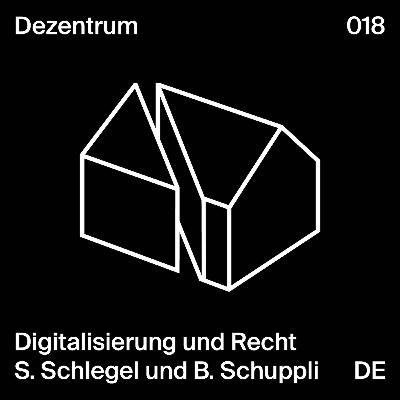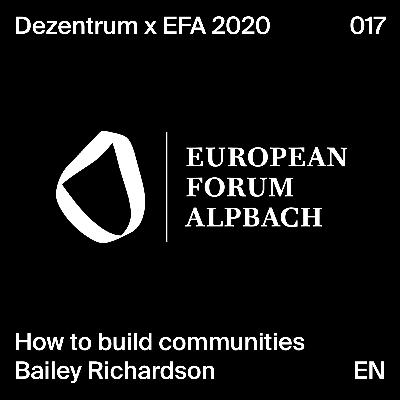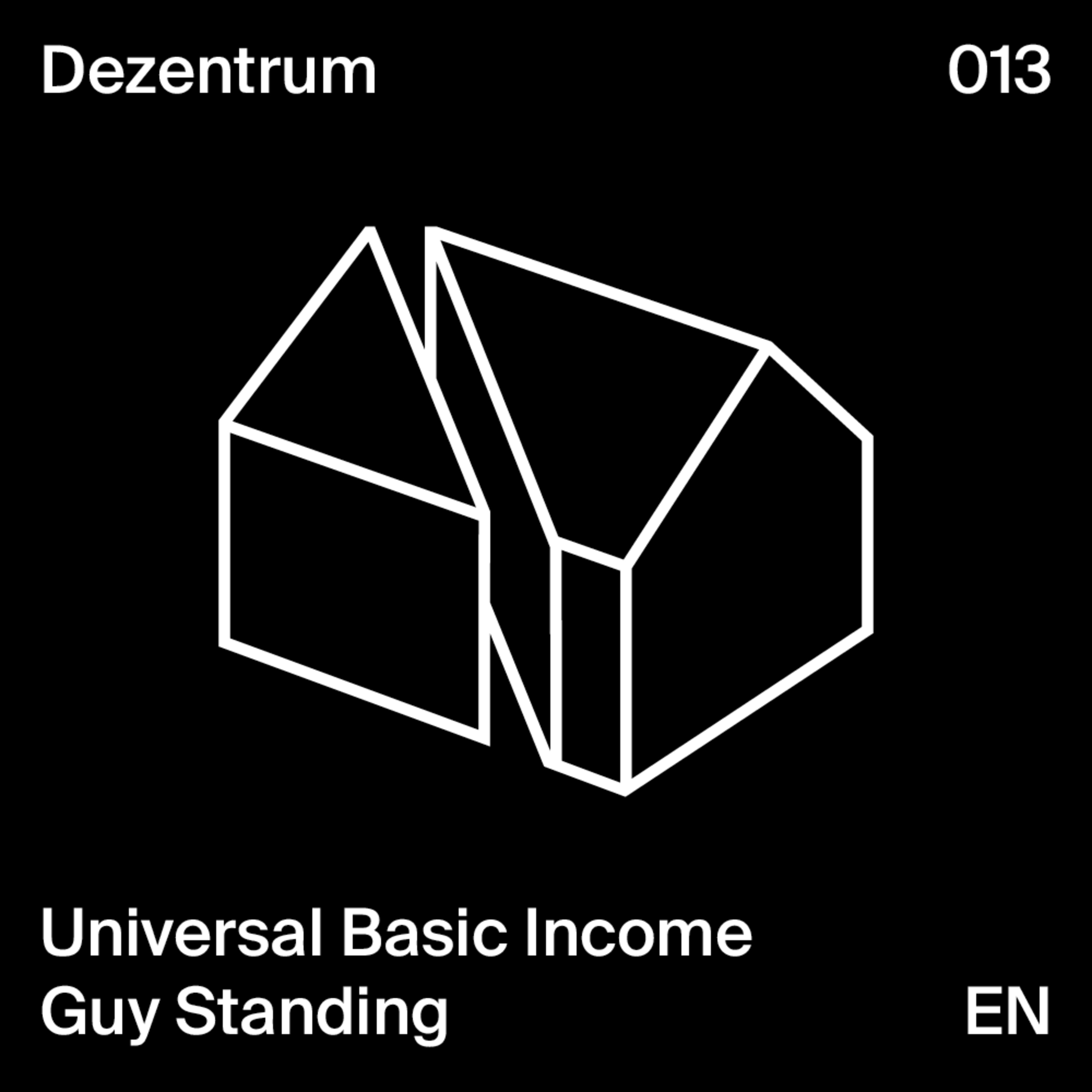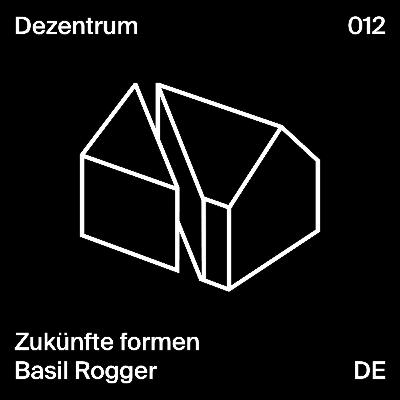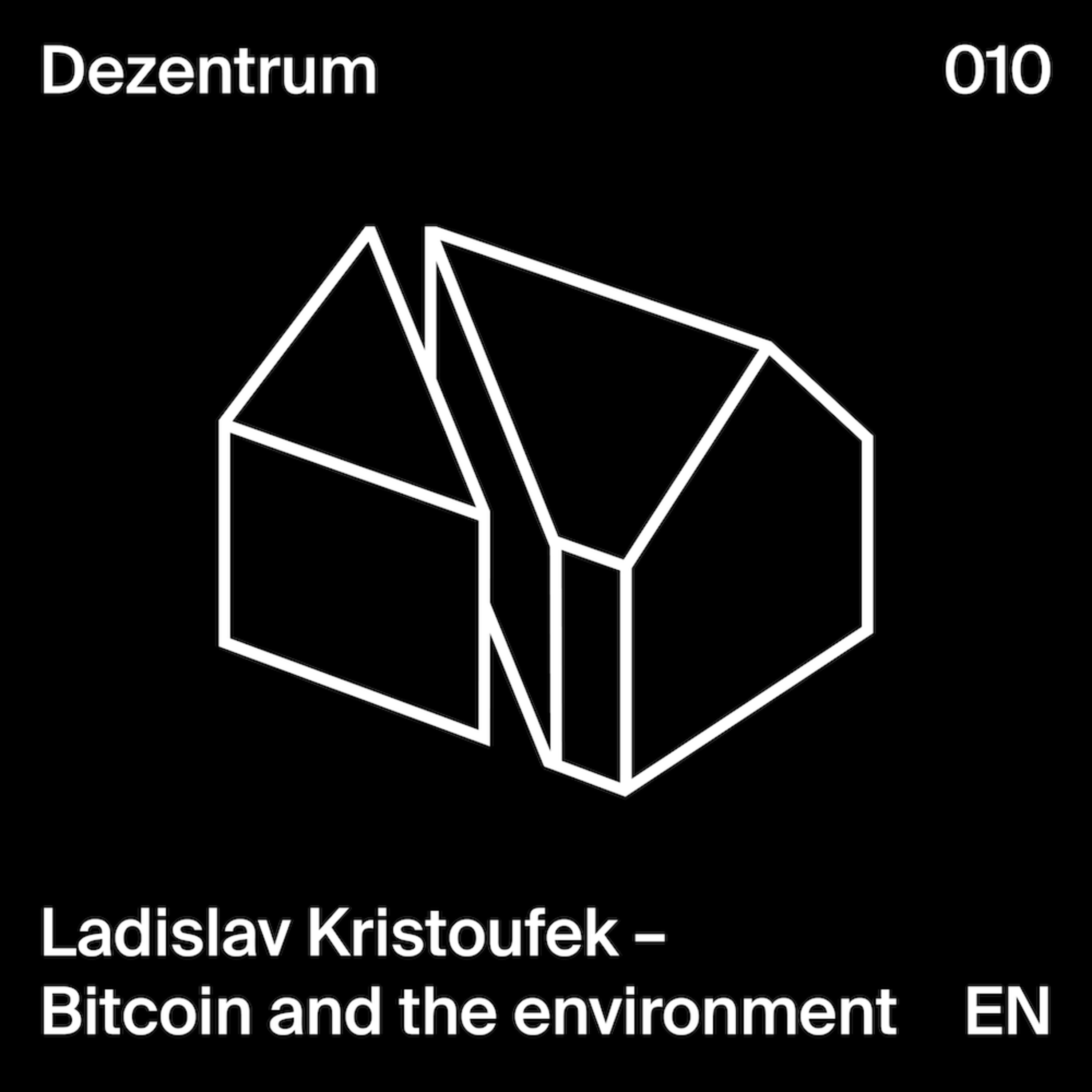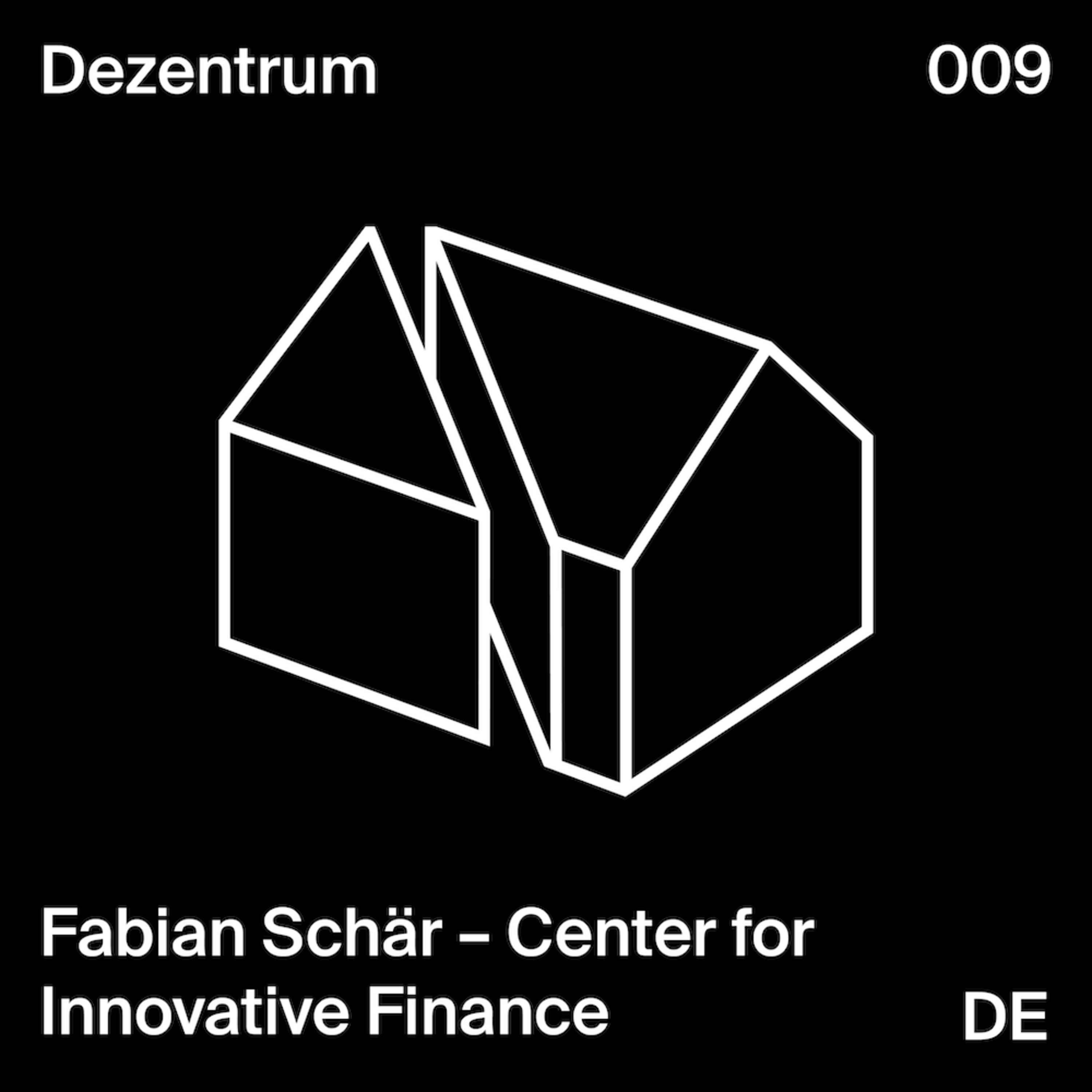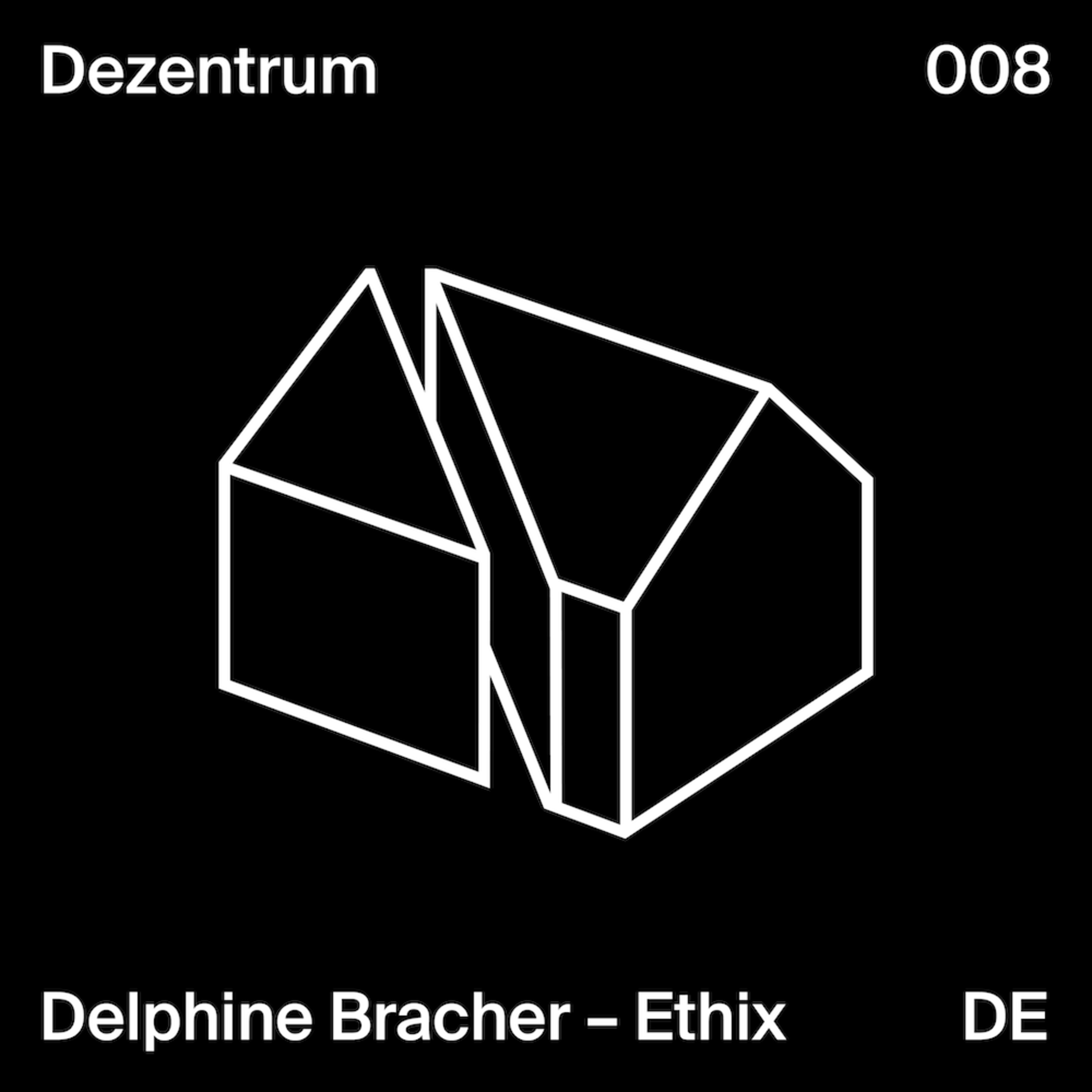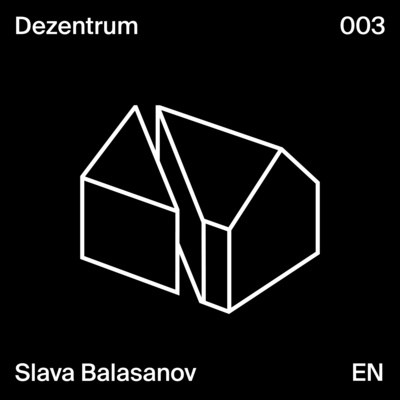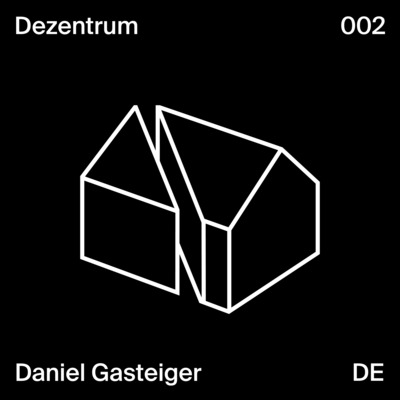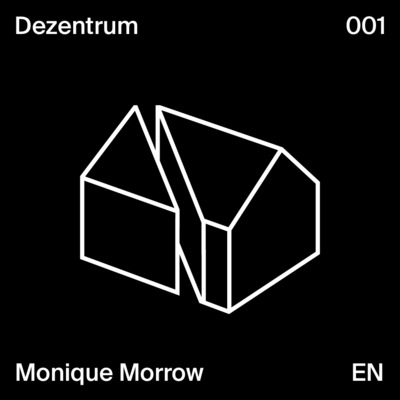Discover Dezentrum Podcast
Dezentrum Podcast

Dezentrum Podcast
Author: Think Tank Dezentrum
Subscribed: 15Played: 58Subscribe
Share
© Think Tank Dezentrum
Description
Willkommen zum Podcast des Dezentrum - Welcome to Dezentrum's Podcast.
Dieser Podcast deckt ein breites Themenspektrum rund um die Dezentralisierung und ihre Auswirkungen auf die Gesellschaft ab. Dezentralisierung ist nicht nur Blockchain und Bitcoin, sondern viel mehr. Die Sprache ist je nach Gast Deutsch oder Englisch.
This podcast covers a broad range of topics related to decentralization and its impacts on society. Decentralization is not only blockchain and bitcoin, it’s much more. The podcast's main language depends on the guest, either english or german.
Dieser Podcast deckt ein breites Themenspektrum rund um die Dezentralisierung und ihre Auswirkungen auf die Gesellschaft ab. Dezentralisierung ist nicht nur Blockchain und Bitcoin, sondern viel mehr. Die Sprache ist je nach Gast Deutsch oder Englisch.
This podcast covers a broad range of topics related to decentralization and its impacts on society. Decentralization is not only blockchain and bitcoin, it’s much more. The podcast's main language depends on the guest, either english or german.
18 Episodes
Reverse
Unser Wecker kann nicht nur Lärm, er kann auch telefonieren und Fotos machen. Wohnungen werden über digitale Plattformen für ein Wochenende vermietet und Autos mit Ihrem Computerhirn entscheiden, wie in welcher Situation gehandelt wird. Ein Aspekt, der laut libertären Stimmen oder auch Innovatoren viel zu langsam ist, das ist das Recht bzw. der Rechtsstaat. Stimmt es, dass die Gesetzesmacher aber auch unsere Gesetze der schnellen Digitalen Welt hinterher hinken? Wie reagieren Rechtsstaaten auf die Digitalisierung und ist es in Ordnung wenn der Staat die Suche nach Strafrechtsverletzungen an Private Unternehmen abgibt? Wir fragen bei den Rechtswissenschaftler Stefan Schlegel und Benedikt Schuppli nach.
In our last episode we’re meeting Bailey Richardson, an expert for community building who helps to build communities of all kinds around the world. We discuss why vibrant communities need leaders, how they can use digital tools, and whether these learnings can also be adapted for our democracies of the future.
In the second episode we put the spotlight on education. Our guest from Latvia, Evija Celma is working on several digital literacy projects. The imminent lack of employees is best tackled with promoting ICT skills in schools, that is why she is working for the IT education foundation in Latvia. But as often, it is not that simple: Studies have shown that stereotypes impede equal representation in the digital sector.
Dezentrum x EFA 2020 - How can digital technologies strengthen democracies?
In our first episode we talk to Joanna Rohozinska about the current information warfare that manipulates political discourses across Europe. With the beacon project Joanna and her colleagues try to counter these state-sponsored campaigns attempting to undermine democracies not only, but especially in Eastern Europe.
Luciano Floridi is Professor in the Digital Ethics Lab at the University of Oxford and one of the leading voices in the global discourse when it comes to ethics and the digital future. What happens if Robots, AI and Humans live together. How do, should or will they interact with each other?
Let’s imagine there is a future where every morning you wake up, have a cup of coffee and then start doing the thing you like the most. Work is not a thing that you have but want to do and actually enjoy! The monday morning vibes are gone for good. And all this withouth to worry if you can pay the rent at the end of the month. Thanks to a universal basic income, this future scenario is not a utopia anymore.
You probably already asked yourself, what’s that noise in the background? Well this is probably a world's first, at least it's an dezentrums first. With me on this first ever podcast recording on a train is Guy Standing.
Guy is founding member of the Universal Basic Income Network Earth, a non-governmental organisation that promotes a basic income for all. We had roughly 45 Minutes to talk about why a Universal Basic Income could be something, that we should wish or work for. Also what Guy would have done differently if he had a UBI at his disposal when he was younger.
Wie gehen wir mit dem Neuen, mit der Zukunft um? Wie und warum müssen wir Zukünfte formen und woher kommt die Angst vor der Zukunft. Mit Basil Rogger, Zukunftsforscher und Studiengangsleiter des Master Transdisziplinarität an der ZHdK haben wir die Themen aufgearbeitet.
How can a technology change the way humans interact with each other for a better world? How can a global community shape a technology in that way? And how can it be used to build more open and inclusive institutions which could move the needle for humanity?
These are just some questions we’d like to tackle in this episode with Boris Mann and Lane Rettig. Both are highly active in the Ethereum community. If you think that Ethereum and it’s community is only thinking about cryptocurrency, you will be surprised. It’s much, much more than that. What exactly you may ask? Well let’s not wait any longer and dive into this episode, with me in Zurich I have Ozan Polat, Lane joining from New York and Boris in Vancouver.
Relevant links // Shownotes:
A list of EVM networks – ChainID.network // Nepal blockchain Network https://twitter.com/NepalBlockchain https://nepalblockchain.network/ // Lane Rettig - So you think you want to be a core developer – https://medium.com/crypto-nyc/so-you-think-you-want-to-be-a-core-developer-87cca2cb475e // Fellowship of Ethereum Magicians – https://ethereum-magicians.org/ https://twitter.com/EthMagicians // Ethereum Cat Herders – http://www.ethereumcatherders.com/ https://twitter.com/ethcatherders // no loss lottery – https://www.pooltogether.us/ // Pedro Gomez – https://twitter.com/pedrouid Walletconnect – https://walletconnect.org/ // Vyper smart contract language – https://vyper.readthedocs.io/ // burnerwallet – xdai.io //OMI open money initiative – https://www.openmoneyinitiative.org/ // Social Architecture: Building On-line Communities by Pieter Hintjens – https://hintjens.gitbooks.io/social-architecture/content/ // Humans of ethereum Podcast – https://humansofethereum.simplecast.com/ https://twitter.com/0xhumans
If you search the web for Bitcoin and the environment, there are plenty of articles dooming the end of the world because of the high energy usage of Bitcoin. Is this really true? In this episode I’d like to tackle this question and invited Ladislav Kristoufek. He is an associate Professor at Charles University in Prague and an expert regarding bitcoin and the environment.
Fabian Schär ist Professor und Geschäftsführer des Center for Innovative Finance in der Universität Basel. Das Institut forscht rund um die Thematiken von DLT und Blockchain. Als erstes Institut in der Schweiz speichert es die Diplome ihrer Absolvierenden auf der Blockchain. Fabian erklärt, warum das wichtig ist, weshalb die Universität Basel Vitalik Buterin, dem Kopf hinter der Ethereum-Blockchain, einen Ehrendoktortitel verliehen hat, und aus welchem Grund digitale Währungen von Zentralbanken nicht wirklich Kryptowährungen genannt werden dürfen.
Innovation ist nicht neutral, sondern wirft immer ethische Fragen auf. Was ist Ethik, also die Wissenschaft von der Moral, im Grunde? Beissen sich Ethik und Innovation und bremst Ethik vor allem auch gewisse Innovationen aus? Dominique Bracher von Ethix einem Lab aus zürich welches sich mit Innovationsethik auseinander setzt, hat mir diese Fragen beantwortet und aufgezeigt wie man als Unternehmen durch gewisse Prozesse der Ethik profitieren kann.
Welche Rolle werden Automation und Künstliche Intelligenz in unserer Zukunft spielen? Macht es Sinn ein Bedingungsloses Grundeinkommen einzuführen? Und weshalb brauchen wir einen Fonds für Soziale Innovationen? All dies und noch mehr haben wir mit Anke Domscheit-Berg, Bundestagsabgeordnete für die Linke live am 35. Chaos Communication Congress, dem 35c3, in Leipzig besprochen.
Dies ist die zweite der zwei Spezialausgaben des Dezentrum Podcasts von der Infrachain in Bern. Die Infrachain ist die erste Schweizer Blockchain-Konferenz, welche auf auf die Bedürfnisse von Verwaltung und öffentlichen Infrastrukturbetreibern ausgerichtet ist. In diesem zweiten Gespräch wollen wir mit Cornelia Stengel, Rechtsanwältin und Partnerin bei Kellerhals Carrard, Daniel Diemers, Head Blockchain EMEA bei PwC Strategyand und Mirjam Eggen, Assoziierte Professorin für Privatrecht und Finanzmarktrecht, das Thema Blockchain Strategie für schweizer Kantone etwas genauer beleuchten.
Dies ist die erste der zwei Spezialausgaben des Dezentrum Podcasts von der Infrachain in Bern. Die Infrachain ist die erste Schweizer Blockchain-Konferenz, welche auf auf die Bedürfnisse von Verwaltung und öffentlichen Infrastrukturbetreibern ausgerichtet ist. In diesem ersten Gespräch wollen wir mit Carla Bünger, Blockchain StartUp Mentorin, Darko Stefanoski, Head Legal Digital Financial Services Switzerland EY und Cédric Wermuth, SP Nationalrat, die Chancen und Risiken der Blockchain etwas genauer beleuchten. Auch unter dem Aspekt, wer denn die Verantwortung trägt.
User experience in decentralized Apps isn't where it should be. Most of the applications lack a good experience and a good interface and are thus only usable by geeks and programmers. This is why we asked Nik Page to give us some answers regarding these topics. What has to change, how do we get there and ultimately what is good user experience?
Slava Balasanov lives in New York and is an Artist and Blockchain developer. We will talk about the media and information industry and why relevance in the information economy could be the key to high quality content for the masses.
Mit Daniel sprechen wir über die Bankenwelt und Blockchain, über e-Government as a Service, wie wir wieder Kontrolle über die eigenen Daten erhalten und mit diesen ein weiteres Einkommen generieren könnten.
Daniel hat 20 Jahre lang in der Finanzbranche gearbeitet, wo er zuletzt eine führende Position bei der UBS innehatte. Seine Faszination für Blockchain und Dezentralisierung hat ihn aber dazu veranlasst, seiner Karriere eine andere Richtung zu lenken: Mittlerweile ist Daniel CEO vom Think Tank Procivis. Er ist ausserdem Initiator und Co-Founder des Trust Square Blockchain, wie auch Vorstandsmitglied des Global Blockchain Council.
In den ersten Episoden wollen wir euch unser Advisory Board vorstellen, daher ist nach Monique Morrow nun auch Daniel Gasteiger an der Reihe.
As a first guest we have Monique Morrow. In the first three episodes, we’d like to introduce you to our advisory board. With Monique we talked about the ethics of autonomous systems, digital identities and how decentralization will shape our society in the long run.
Monique is president and co-founder ofhe Humanized Internet, a non-profit organization aiming to provide digital identities for those individuals most underserved. She is also a an Associated Researcher at Alexander Humboldt University Institute of Internet and Society. Furthermore Monique is co-chair of the IEEE Ethics in AI and Autonomous Systems Mixed Reality Committee in addition to being a member of its Executive Committee. And last but not least, Monique is part of our Advisory Board.


